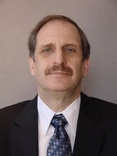
We are now reading the second of the five books of the Torah, the book of Exodus. In Hebrew the name of the book is Sh’mot, which means “names.” Sh’mot begins by listing the names of the sons of Israel (aka Jacob) who came to Egypt. These same people were listed in Genesis 48, the final chapter of the first of the five books of Moses. Why did the biblical text repeat what we already know? One suggestion is that hundreds of years after leaving Israel, the descendants of Israel still knew their Hebrew names and for that reason they were worthy of being redeemed.
In our time, it is traditional to give our children Hebrew names; boys are given their names when they have their B’rit Milah – circumcision – and girls at a special naming ceremony. In reality, many in our community were never given a Hebrew name by their parents, or people have forgotten the Hebrew name that they were given. I have had to provide witnesses to the signing of a ketubah (the traditional marriage agreement) a Hebrew name so that they can sign the document. I have officiated at funerals needing to insert the Hebrew name of the deceased into the liturgy and there was no one who knew the Hebrew name of the deceased.
On happier occasions, when we call people up to the Torah for an Aliyah we use their Hebrew names. When individuals are ill we say [sing] a mi shebeyrach after first announcing all of those who are ill. At NJC we commonly use English names, but it is more traditional to use Hebrew names. Yes, I know that God understands our prayers in English, but there is something very moving about following a very old tradition and knowing that we are using a custom – minhag – that our ancestors did long ago, even when they were in Babylonia.
I will be conducting a workshop on Monday, January 28th at 7:30 pm to explain how many of our Hebrew names came about. I will provide those who attend with suggestions for where they can research the meaning of their names or select an appropriate Hebrew name. We will start to compile a file of everyone’s Hebrew names that can be used on appropriate occasions. Later in the year, we will have a special group naming for those in our community who receive Hebrew names.
Please email me at [email protected] or call me at (985) 400-3959 to let me know that you are planning on attending so that I can prepare enough material.
B’shalom,
Rabbi John R. Nimon
(Rav Yisrael Yehudah Leib ben Yosef v’Ester)
In our time, it is traditional to give our children Hebrew names; boys are given their names when they have their B’rit Milah – circumcision – and girls at a special naming ceremony. In reality, many in our community were never given a Hebrew name by their parents, or people have forgotten the Hebrew name that they were given. I have had to provide witnesses to the signing of a ketubah (the traditional marriage agreement) a Hebrew name so that they can sign the document. I have officiated at funerals needing to insert the Hebrew name of the deceased into the liturgy and there was no one who knew the Hebrew name of the deceased.
On happier occasions, when we call people up to the Torah for an Aliyah we use their Hebrew names. When individuals are ill we say [sing] a mi shebeyrach after first announcing all of those who are ill. At NJC we commonly use English names, but it is more traditional to use Hebrew names. Yes, I know that God understands our prayers in English, but there is something very moving about following a very old tradition and knowing that we are using a custom – minhag – that our ancestors did long ago, even when they were in Babylonia.
I will be conducting a workshop on Monday, January 28th at 7:30 pm to explain how many of our Hebrew names came about. I will provide those who attend with suggestions for where they can research the meaning of their names or select an appropriate Hebrew name. We will start to compile a file of everyone’s Hebrew names that can be used on appropriate occasions. Later in the year, we will have a special group naming for those in our community who receive Hebrew names.
Please email me at [email protected] or call me at (985) 400-3959 to let me know that you are planning on attending so that I can prepare enough material.
B’shalom,
Rabbi John R. Nimon
(Rav Yisrael Yehudah Leib ben Yosef v’Ester)


 RSS Feed
RSS Feed
